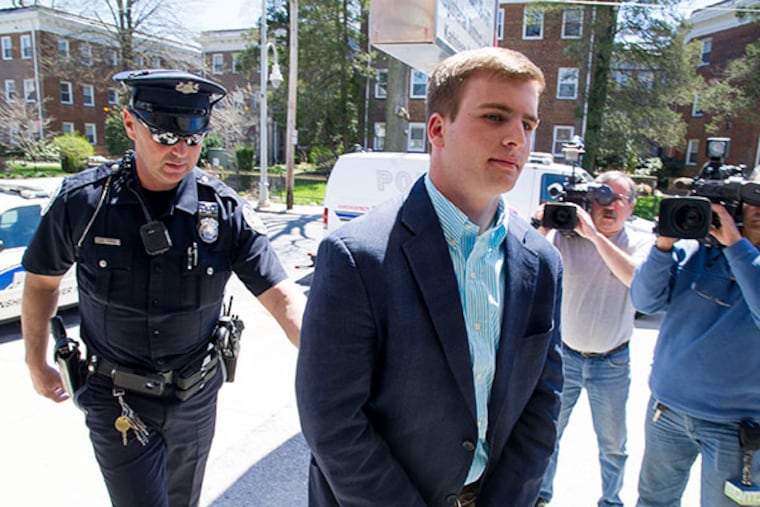Inquirer Editorial: Drug arrests reflect reality
The American public has so conditioned itself to think of drug abuse as an inner-city problem seen mostly among poor black and brown people that it is jarring when reality paints a very different picture.

The American public has so conditioned itself to think of drug abuse as an inner-city problem seen mostly among poor black and brown people that it is jarring when reality paints a very different picture.
That happened Monday when authorities announced that they had broken up a drug ring catering to privileged teens in Philadelphia's tony suburbs. Nine adults and two 17-year-olds allegedly sold drugs to students at Lower Merion, Harriton, Conestoga, and Radnor High Schools.
The arrests made national news, which shows how rare major drug busts are in such settings. But that's not because Main Line teens are immune to drug abuse - particularly when it comes to marijuana, apparently the principal product sold by this ring.
In fact, pot has never been more accessible in high schools. More than 70 percent of teens nationwide say they have friends who use marijuana regularly, up from 64 percent in 2008. In that time, the number of teens who had used weed in the past month rose 42 percent, and heavy users of marijuana increased 80 percent.
The lucrative market reflects this country's evolving view of marijuana use, which has led two states - Washington and Colorado - to legalize recreational use and tax sales of the drug. Other states, envious of the potential revenue, are likely to follow suit, much as they did in sprouting casinos across the land.
As America heads down that road, it needs to consider the impact on teen drug abuse. The Partnership at Drugfree.org says 90 percent of adults with drug or alcohol problems started using before age 18. And marijuana dependency is the most common diagnosis of teens admitted for drug treatment.
Those facts add to the significance of the Main Line bust, even though it took only eight pounds of marijuana and smaller quantities of other drugs out of circulation. The arrests let dealers know that preying on children has consequences.